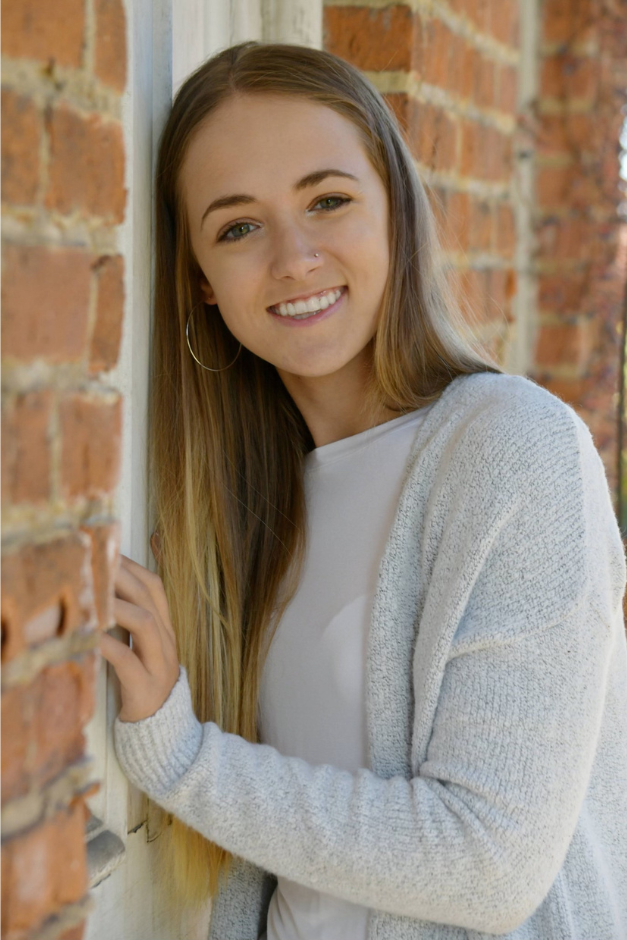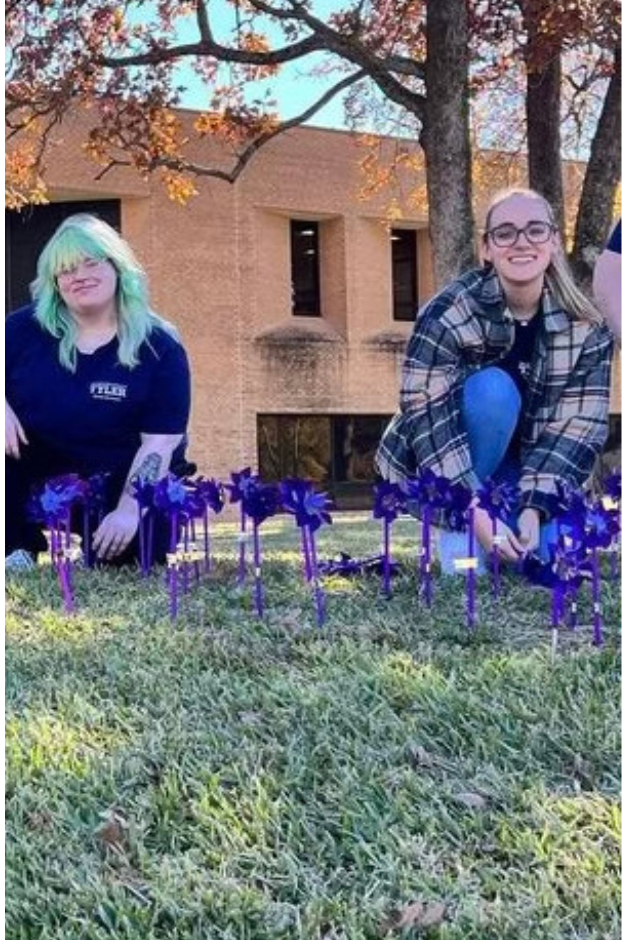Jane: My guest today is Riley Bay. Originally from the Texas Panhandle, Riley is a 21-year-old social work major at the University of Texas at Tyler.
She just completed her junior year with plans to graduate in the spring of 2024 with UT Tyler’s first social work program’s graduating class. Riley lived in Pennsylvania for three years where she reluctantly experienced cold winters, which helped her decision to come back to Texas. Riley, welcome.
Rylie: Hi.
Jane: I want to begin by asking you what drew you to the program and to UT Tyler?

📷 all photos courtesy Riley Bay
Rylie: The reason why I wanted to do social work is because I’m a very empathetic person naturally. I actually switched; I was originally going to be a radiology technician. As I was applying, I was between SFA and UT Tyler. I lived in the dorms for a little bit at UT Tyler and I just liked the overall vibe of UT Tyler, so that’s what drew me in.
Jane: So, now that you’ve been there for a minute, has anything come up in class? Any topics that have been particularly meaningful or resonant for you personally?
Rylie: I think everything that has been brought up in all my classes has been really important to me. It’s opened my mind to a lot of stuff that I haven’t experienced before.
Jane: Yeah, let’s dive into that. What have you experienced that has been new?
Rylie: With the social work club, we’ve participated with the Alzheimer’s Association and Alliance. With the association, we did a bake sale on campus, where part of the proceeds went to the association.
We did trunk or treat on campus, which was working with the East Texas Crisis Center. We did a lot of on-campus activities like transfer orientations, stations for incoming people that have applied. But a lot of people don’t know that social work is a thing at UT Tyler, so we’re trying to get the word out there.
Jane: As you’ve seen now some of the organizations and the needs in East Texas, have any been particularly interesting to you?

Rylie: Being in social work and helping all these agencies, it’s brought up a lot of social work needs. As in, social workers don’t get paid enough; there’s not a lot of social workers to go around; and that also causes a lot of issues for the surrounding community, because to be effective, you have to be effective in your job. At the moment there’s a high turnover rate, so they’re not being as effective as they would be if there was less of a turnover rate.
Jane: Thank you for bringing that to light. Are there any other needs you see in the community that are especially poignant to you?
Rylie: I’m very passionate about veterans and the mental health they go through. That’s a need I’ve noticed, is that veterans need more support.
Jane: Are you familiar with Camp V?
Rylie: Yeah, that’s another reason why I wanted to get into social work. Originally, I wanted to go work at the VA.
I hope that as the program grows and the social work club does more in the community, I hope that more people will do their research into social work and help us get more social workers out in the community, getting their degree and then going out into the community — that more people will either participate in club events, whether they’re social worker students or not. Just get more community involvement.
Jane: Great. Is there anything else that hasn’t come up yet that’s important to address? Anything you wish people knew or understood?
Rylie: I wish more people understood that social work just isn’t cps, cuz that’s what a lot of people think and all social workers are labeled, like, child kidnappers and all of this stuff. That’s kind of one of the pet peeves I have when people say that. Social work is so much more than just CPS.
You could do CPS, but you could do hospital social work. You could go into law, you can go into politics. Like there’s so much more than just that one specific area of social work.
Jane: If you were to convince someone what a social worker brings to a community, what would you say?
Rylie: I would say there’s a lot of things that social workers bring to the community, but I would say that a social worker brings empathy. They bring resources, they bring advocacy. They’re able to advocate for a specific population, whatever the population they want to support.
I feel like social work is just a lot of empathy with people and being able to know the resources around the community to give to people that need it.
Jane: Speaking of empathy, has that been challenged yet? I think one thing you’re learning in your social work program is how to give resources and care to people no matter who they are, what their background is or what their life aspirations are.
Rylie: Yes.
Jane: Have you ever felt a little bit of resistance to that?
Rylie: I haven’t felt any resistance to my empathy. I think the thing I’m dealing with the most right now is when people have like differing beliefs than I do.
Jane: Yes.
Rylie: I’m trying to figure out how to navigate that.
The social work classes that we’ve been in have talked a lot about client resistance. A lot of the professors say, “You can only help as much as you can, and they will only get as much help as they want.”
When you think about it, it’s challenging to let them decide how much help they want to get, even though they need the help.
I haven’t really experienced a lot of resistance yet. It’s coming, but I haven’t experienced it right now.
Jane: Yeah, I get the impression you kind of have to be a Zen master and just really let go of outcomes. You provide what you want to provide or what you can and trust whatever happens.
Rylie: Definitely.
Jane: Riley, it’s been so nice to have you. Thanks for sharing with The Tyler Loop.
Rylie: Thank you for inviting me.
Love what you're seeing in our posts? Help power our local, nonprofit journalism platform — from in-depth reads, to freelance training, to COVID Stories videos, to intimate portraits of East Texans through storytelling.
Our readers have told us they want to better understand this place we all call home, from Tyler's north-south divide to our city's changing demographics. What systemic issues need attention? What are are greatest concerns and hopes? What matters most to Tylerites and East Texans?
Help us create more informed, more connected, more engaged Tyler. Help us continue providing no paywall, free access posts. Become a member today. Your $15/month contribution drives our work.







